
* * * *
This post could be titled, “Where the magic happens.” That is, while listening to last Sunday’s sermon a phrase hit me. “Comfort zone.” As in the comfort zone so many Conservative Christians seem to like. As in “Comfort Zone Christians.” Which led to the image above.
And led to this thought: Those too-literal Fundamentalists are “missing out on the magic…”
 I’ve used a lot of terms to describe that type of Christian; the kind this blog tries to challenge. To get them to “explore their full potential.” I’ve tried terms like Boot-camp Christian. (As illustrated at left. That is, the kind of Christian who never seems to want to leave the “boot camp” where he “learned the fundamentals.”)
I’ve used a lot of terms to describe that type of Christian; the kind this blog tries to challenge. To get them to “explore their full potential.” I’ve tried terms like Boot-camp Christian. (As illustrated at left. That is, the kind of Christian who never seems to want to leave the “boot camp” where he “learned the fundamentals.”)
I’ve also tried the term Carbon Copy Christians. (As have others, who describe the Christians who seem to go to church only to become “mass produced carbon copies of each other.*”) But Comfort Zone Christian seems to hit the spot.
Like I said in the opening paragraph, God wants us to live lives of abundance. And He wants us to do even greater miracles than Jesus. Or as I said in Reading the Bible, “you’re only cheating yourself if you choose to read and study the Bible only in a strict, narrow, or fundamental way.” Or – finally – as the image at the top of the page indicates, if you’re a too-literal Bible-reader, then you miss out on “where the magic happens.”
For more on this topic, see 7 Reasons Why [the] Comfort Zone is Dangerous.
The article – subtitled Live Life to the fullest – described the term as that “situation where you feel completely secure, comfortable and relaxed to what you currently have.” Which is one thing many people look for when reading the Bible. And which is generally a desirable place to be. However, if you stay in your Comfort Zone too long, you don’t grow. You stagnate.
 Also, being too comfortable – in life or in Bible study – “causes negative mindset and attitude.” And that – unfortunately – is what many Christians are known for. (As noted in Latest from a “None,” I Googled the term “negative Christians” and got 12 million hits.)
Also, being too comfortable – in life or in Bible study – “causes negative mindset and attitude.” And that – unfortunately – is what many Christians are known for. (As noted in Latest from a “None,” I Googled the term “negative Christians” and got 12 million hits.)
Last of all the article said staying in your Comfort Zone too long limits your chance to “Live Life to its Fullest.” And that would be a violation of John 10:10. Then too, if you want to even try to follow the mandate of John 14:12, you need to remember this: “We cannot become what we want to be by remaining what we are.“ That is, you can’t come close to doing greater miracles than Jesus if you read and study the Bible only in a strict, narrow, or fundamental way.
Which doesn’t mean you never read the Bible that way. Sometimes it pays to go back and get a refresher course in the “fundamentals” of the Bible. The danger comes when you only read the Bible strictly and narrowly. Which brings up the concept of “mysticism.”
The terms “mystic” or “mysticism” seems to drive Conservative Christians crazy:
Mysticism is when you get into a mystical state and it’s something you cannot understand, you’re out there in “la-la” land, it’s an “oooh” experience and you’re really not thinking.
See What is Christian mysticism? – GotQuestions.org. (As the term was discussed in On the Bible and mysticism. Which post also noted: “The terms ‘mystic‘ or ‘mysticism‘ seem to throw Southern Baptists and other conservative Christians into apoplexy. (‘Try it sometime!!!‘)”
But as first used, the term “referred to the Biblical liturgical, spiritual, and contemplative dimensions of early and medieval Christianity.” See Mysticism – Wikipedia, and On originalism.
In other words, mysticism – connecting with God – was “what the Bible was originally about!” For another example – thinking outside the box – see also The Bible’s “erotic love poem.” That post discussed the Bible book Song of Songs. (Also called the “Song of Solomon”):
The Song of Solomon is a love poem, frankly erotic, apparently composed to celebrate a wedding. This, too, is appropriate, for Solomon had numerous wives and was, presumably, an experienced lover. (E.A.)
 The irony is that Bible literalists and/or fundamentalists insist on not giving the Song of Songs its literal meaning. Instead, such Comfort Zone Christians read this book – and this book alone – “allegorically, as having to do with God’s love for his people.” In the alternative, they interpret the book as “treating the love that it celebrates as an analogy for the love between God and the Church.”
The irony is that Bible literalists and/or fundamentalists insist on not giving the Song of Songs its literal meaning. Instead, such Comfort Zone Christians read this book – and this book alone – “allegorically, as having to do with God’s love for his people.” In the alternative, they interpret the book as “treating the love that it celebrates as an analogy for the love between God and the Church.”
In other words, the idea of a “frankly erotic love poem” in the Bible is something Conservative Christians can’t seem to handle. (Or choose not to, as in “You Can’t Handle the Truth!”) But the better course – aside from interpreting all the books of the Bible “strictly and literally” – is to treat the Bible as both simple enough for a child and yet “full of mysteries:”
In other words, you could say that the Bible message is both simple enough for a child to understand, yet so full of subtle mysteries that a lifetime can be spent on its study, yet still leave myriads of lessons yet to be learned. (See 1st Corinthians 4:1: “This then is how you should regard us, as servants of Christ and stewards of the mysteries of God.”)
That’s from Snake-handling “redux,” which made the point that the Bible is best approached on two levels: A literal level where you “learn the fundamentals,” and a more spiritual level “where the magic happens.” Or as Paul said in 2d Corinthians 3:6, Jesus “made us competent as ministers of a new covenant – not of the letter but of the Spirit; for the letter kills, but the Spirit gives life.” (Which is another way of saying, “If Jesus was a Conservative, we’d all be Jewish.”)
Snake-handling “redux” raised another danger of reading the Bible too literally: The danger that some people tend to take isolated passages out of context, and way too literally.
Which means that they could end up like “Stumpy” in the picture below…
* * * *

The snake handler on the right – “Stumpy?” – is arguably taking Mark 16:18 “out of context…”
* * * *
The upper image is courtesy of comfort_zoneblog.crew.co. The subtitle is “Why it’s scary and why you should;” I.e., why you should get out of your comfort zone from time to time.
“Note” also that an asterisk in the main text indicates a statement supported by a reference detailed further in this “notes” section. Thus as to Carbon copy Christians, see Paul describes an out-of-body experience, which included the link, How to Break the Cookie-Cutter, Carbon Copy Christian Cycle:
Churches, wittingly or otherwise, often taken on the role of mass producing assembly lines. Each Christian is instructed in the same way, given the same set of rules, a particular sanitized clothing lines of music selection, and specific speculative interpretations of scripture which they must abide by. Churches such as these are not interested in creating unique Christians but mass produced carbon copies of each other.

 Back in 2008, Republican presidential candidate
Back in 2008, Republican presidential candidate  At this point it should be noted that
At this point it should be noted that  Which is another way of saying the nastier you are, the more you “win.” It also means a person who is not content with being just a
Which is another way of saying the nastier you are, the more you “win.” It also means a person who is not content with being just a 
 “Note” also that an asterisk in the main text indicates a statement supported by a reference detailed further in this “notes” section. Thus as to
“Note” also that an asterisk in the main text indicates a statement supported by a reference detailed further in this “notes” section. Thus as to 
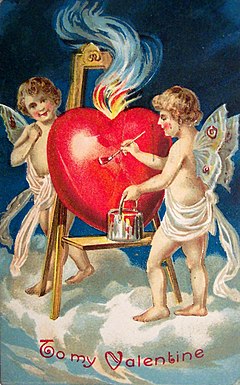 Today is
Today is  Isaac Asimov
Isaac Asimov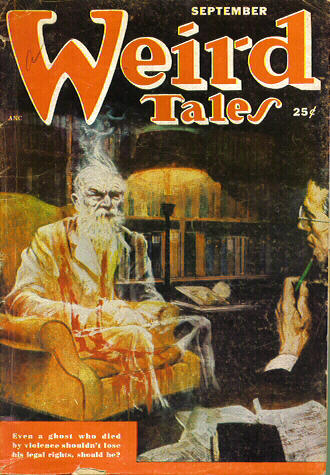 On that note
On that note 

 This year’s
This year’s  It didn’t happen…
It didn’t happen… I’ll tell you what would have happened. Chaos: Israel defeated. No Moses, no Bible, no Jesus and His teachings to temper the inherent greed and cruelty of humans. Which of course would make some people happy. (As shown at right.)
I’ll tell you what would have happened. Chaos: Israel defeated. No Moses, no Bible, no Jesus and His teachings to temper the inherent greed and cruelty of humans. Which of course would make some people happy. (As shown at right.) 

 Then too, that brings up what I wrote last January. I posted
Then too, that brings up what I wrote last January. I posted  “Are you telling me
“Are you telling me 
 But then she started the second half of her essay. She noted she grew up in a
But then she started the second half of her essay. She noted she grew up in a  She closed by saying that she longed for the kind of faith her mother had. She also noted a
She closed by saying that she longed for the kind of faith her mother had. She also noted a  Those
Those 
 A side note: Ms.
A side note: Ms. 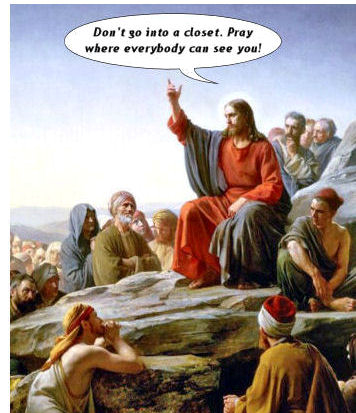 Also last year at this time I did
Also last year at this time I did  And finally, note
And finally, note 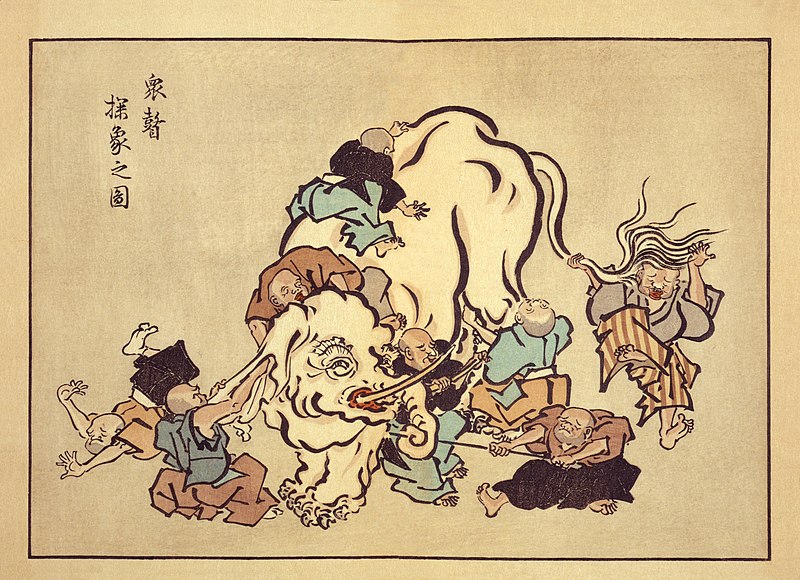

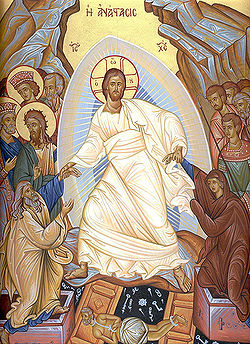 Then too, a discussion of
Then too, a discussion of  Nevertheless,
Nevertheless,  ist detractors who characterized them as drunken, violent, criminalized, and diseased [ – as illustrated at right – ] Irish-Americans were looking for ways to display their civic pride and the strength of their identity… [They] celebrated their Catholicism and patron saint … but they also stressed their patriotic belief in their new home. In essence, St. Patrick’s Day was a public declaration of a hybrid identity [with] a strict adherence to the values and liberties that the U.S. offered them.
ist detractors who characterized them as drunken, violent, criminalized, and diseased [ – as illustrated at right – ] Irish-Americans were looking for ways to display their civic pride and the strength of their identity… [They] celebrated their Catholicism and patron saint … but they also stressed their patriotic belief in their new home. In essence, St. Patrick’s Day was a public declaration of a hybrid identity [with] a strict adherence to the values and liberties that the U.S. offered them. The one thing I do remember is that the book was so fascinating it made me miss a plane to
The one thing I do remember is that the book was so fascinating it made me miss a plane to  But we were discussing
But we were discussing 
 As noted in earlier posts, my
As noted in earlier posts, my  And aside from being a slave, Joseph also had to become pretty much a convicted felon. That is, he got “convicted” after
And aside from being a slave, Joseph also had to become pretty much a convicted felon. That is, he got “convicted” after  According to the
According to the  n practice back then for really smart people to have their students – and followers – take down what they said. For example, consider what
n practice back then for really smart people to have their students – and followers – take down what they said. For example, consider what  Aristotle [
Aristotle [ Also re: “buck private.” See
Also re: “buck private.” See  Specifically, help came from one of the “gap readings,” between February 6 and 7. That reading is
Specifically, help came from one of the “gap readings,” between February 6 and 7. That reading is  And of those potential prophets, Moses – shown at right – was arguably the one who faced the greatest danger of all. He was after all “the First.” He was the original “prophet,” the man who single-handedly had to meld a huge group of former slaves into an army able to enter and conquer their own particular
And of those potential prophets, Moses – shown at right – was arguably the one who faced the greatest danger of all. He was after all “the First.” He was the original “prophet,” the man who single-handedly had to meld a huge group of former slaves into an army able to enter and conquer their own particular  Then there’s
Then there’s 
